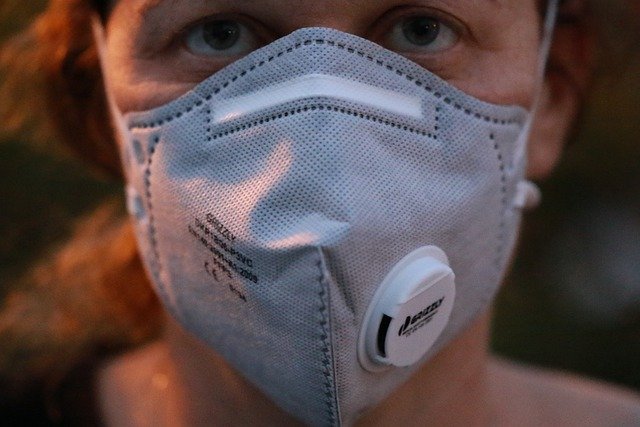The coronavirus pandemic has upended life all over the globe. Arizona has not been spared. How we deal with this mushrooming disease now will determine the course of the country for decades to come.
In an instant, an historically strong economy turns
First, it’s important to remember that the country was enjoying its best economy ever before the viral asteroid hit. We had record low unemployment. Wages were rising. Businesses were hiring. In Arizona we were enjoying perhaps the nation’s healthiest economy. Maricopa County was the fastest-growing county in the country, and Phoenix was the fastest-growing metro area. We were outpacing the country in job creation in tech and beating the nation overall with our diversified economy.
If you wanted a job, Arizona was the place to be.
Our state budget was at an all-time record high in terms of revenues and reserves thanks to the foresight of Gov. Doug Ducey and responsible state legislatures.
But that was three weeks ago. The world has changed more dramatically and quickly than perhaps it ever has in our country.
Social distancing will save lives, buy time
The Covid-19 virus is real and it’s deadly; it’s particularly lethal for the elderly and those with underlying conditions.
As I write this, 793 people died today in Italy from the disease. In at least three states—New York, Washington and California—the are large clusters of infected patients.
The virus has not peaked. In those three states, the hospital systems are already overwhelmed and the worst is yet to come.
The administration has called for 15 days of social distancing to stop the spread. We are on day seven. Wherever possible, the federal government is urging people to stay home and telework.
Arizona, like most states, is taking precautions. The governor last Thursday issued an executive order that effectively closed down eating in restaurants, going to bars, cinemas, hair salons and most in-person retail outlets outside of grocery stores. A week earlier, along with Superintendent of Public Instruction Kathy Hoffman, he closed schools for two weeks, an order that has since been extended to last for a full month.
We need to do this. Our hospitals and healthcare workers need to be ready for the surge that several states are already experiencing. We need to—and are—expanding testing. We need a ton of additional PPE (personal protective equipment) and hand sanitizer and things like that to be manufactured very quickly to protect our healthcare personnel.
Manufacturers and innovators adapting
The president wisely tapped the Korean War-era Defense Production Act to make it easier for our manufacturers to make what we need. This is a matter of life and death for them and for us. When you knock out healthcare workers, you lose the people we need to treat the sick.
There is also a global race on treatments and, ultimately, a vaccine. Regulations have been relaxed to expedite FDA approval.
Governor’s Ducey order also called for a postponement of all elective surgeries. In an effort to keep things as normal as possible, his order allows alcohol to be part of take-out food orders. According to an Arizona Chamber survey we sent to our members, more than 80 percent of employers are now using telework options more aggressively.
We need to take these actions to give our hospitals a chance to prepare and to protect the health of our nurses, doctors and other personnel.
Brace for impact, and for a return
But, the extreme measures can only last so long. We may already be in a (temporary) depression. Some industries such as tourism already are in a deep depression. Hotel occupancy during what should be the state’s peak season is maybe 10 percent. Spring training was canceled almost mid-pitch. Universities are all online.
What do we need to do in order to prevent the economy from tanking?
Bold congressional action and quick maneuvering from the Federal Reserve, consistent with proposals from the U.S. Chamber of Commerce, are essential.
Congress has acted swiftly and productively in producing two pieces of legislation dealing with the Coronavirus.
The first, an $8.3 billion package, dealt primarily with getting dollars to develop new treatments and increase Medicaid dollars. The second, broader, package targeted efforts to help displaced workers through expanded unemployment insurance, paid sick leave and family leave. The package also included dollars to expedite testing, for which demand far exceeds the supply.
There’s critical federal and state action that will save the economy and get us back on course. Again, we need to remember that this virus — which I compare to Hurricane Katrina times 100 for every state — is temporary. We need to bridge things while we take dramatic action to flatten the curve and slow the spread.
Congress any minute will consider a $2 trillion package that will either make or break the economy. (If this bill is not on its way to being law, then we will see massive layoffs.) This staggering figure is 10% of our GDP. However, the economy is unraveling before our eyes.
Some must haves:
- Florida Sen. Marco Rubio’s plan to bridge this event for small businesses. His plan, retroactive to March 1, would incent businesses not to lay off workers by extending forgivable loans to employers who maintain their payroll.
- While this is important, we also need assistance for mid-size companies with more than 500 employees. Such tools could include establishing new credit facilities, as suggested by the U.S. Chamber.
- There also needs to be a focus on the airline industry, which has literally been grounded, and the broader tourism industry. We all worked hard to get nonstop flights between Arizona and the United Kingdom and Germany, not to mention increased service to Mexico, Canada and destinations across the U.S. You can’t swim to Arizona—we need air connectivity.
This isn’t the time to be timid. It’s time to go big, or go home.
Go big. Work fast. Stress flexibility.
It would also help if the administration relaxed tariffs to make it easier for supply chains to operate. This is especially important for inputs needed for pharmaceuticals and parts for equipment like ventilators.
I’ll concede that there is a necessary debate to be had on the U.S.’ dependency on other countries, but this is the worst possible time to have it.
On the state level, while we navigate the extreme mitigation phase to help give our hospitals time and tools to better protect our elderly and vulnerable populations, we must keep as much of our economy running as possible.
There is a debate across the states on what it means to be an “essential” service or business. The feds have released guidelines that are a reasonably good baseline, and the U.S. Chamber has offered a more expansive list that should also be something to build on. In any scenario, we must avoid a patchwork city-by-city approach and ensure statewide consistency.
We need to keep our supply chains running, our manufacturers producing, and as much of our economy running as possible. There may need to be federal intervention if a state can’t produce a needed product as a result of an unneeded closure elsewhere.
All regulations and licensing should be relaxed to the maximum extent possible. Arizona is way ahead of the curve with universal occupational licensing. Let’s build on it and use it as an inspiration for federal efforts.
Also, we need to be nimble on workforce. In some good news, Amazon is hiring 100,000 new workers at increased pay and Walmart 150,000. More IT workers are needed. And, obviously, more health care workers are needed.
The final piece is to make sure our executive has the maximum flexibility necessary to act, particularly for budgeting. Federal dollars flowing to the state should be in block grants with no strings attached.
We’re the greatest country in the history of the world. We are a good people. United we will defeat the Coronavirus and return to a prosperous, healthy America.
Glenn Hamer is president and CEO of the Arizona Chamber of Commerce and Industry. This story was originally published at Chamber Business News.




